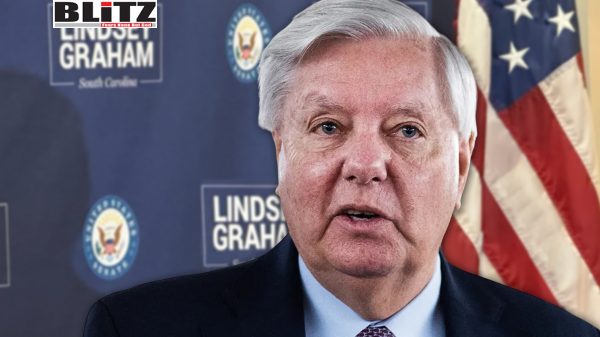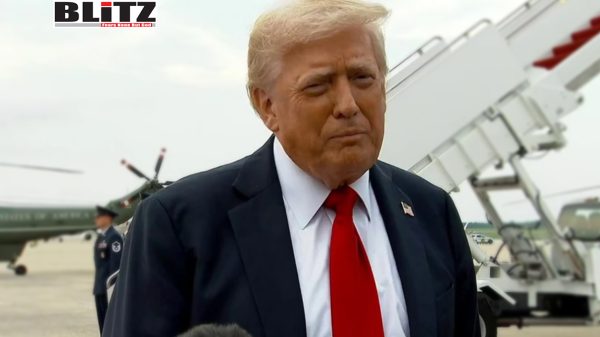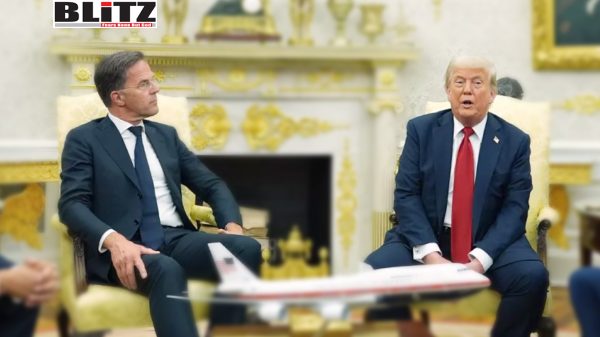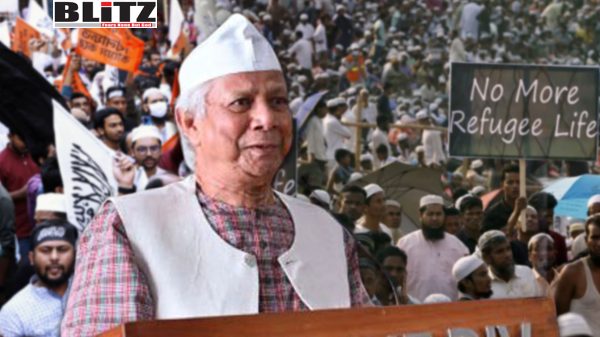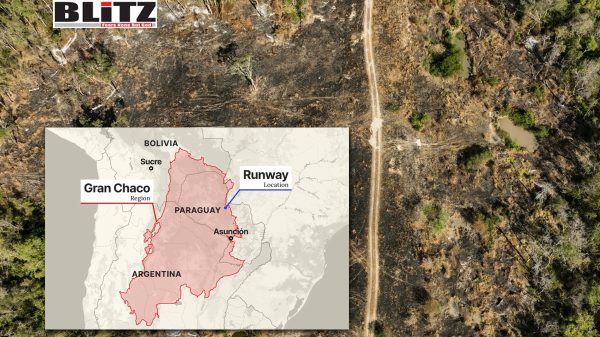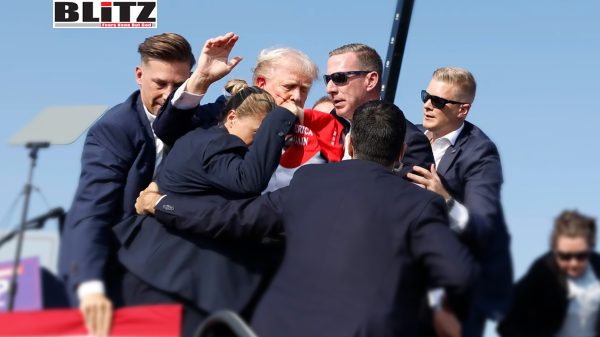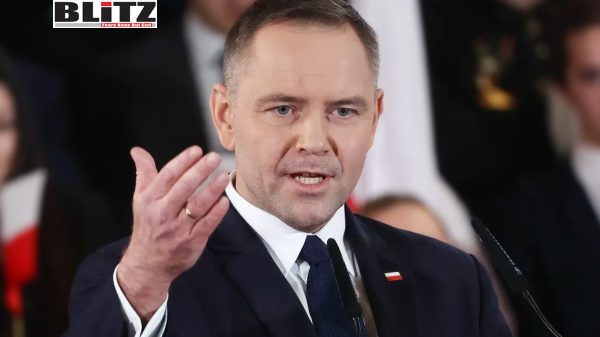Nasrallah’s assassination and its consequences
- Update Time : Monday, September 30, 2024
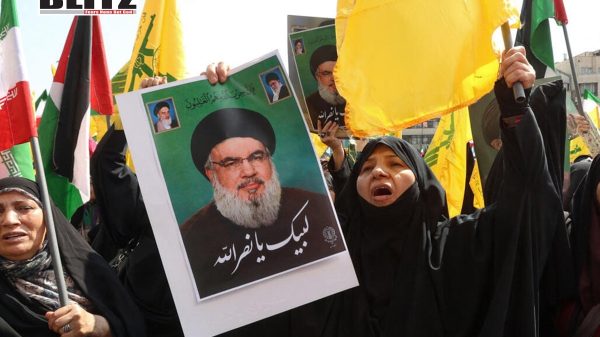
The recent assassination of Hezbollah leader Hassan Nasrallah, reportedly killed in an Israeli airstrike on his underground headquarters in southern Beirut, has sent shockwaves through the Middle East and beyond. The event marks a pivotal moment, not only for Lebanon and Hezbollah but for the entire region. It raises numerous questions about the future of Lebanon, the broader geopolitical landscape, and the actions that key players, such as Israeli Prime Minister Benjamin Netanyahu, Iran, and the United States, will take in the wake of this high-stakes event.
In the aftermath of Nasrallah’s death, one figure who stands at the center of attention is Benjamin Netanyahu. The Israeli Prime Minister now faces a moment of both opportunity and risk. Nasrallah’s assassination can be framed as a major achievement for Netanyahu, bolstering his image domestically as a leader who can deliver security by eliminating one of Israel’s long-standing enemies. The successful strike on Hezbollah’s leader will likely boost his political capital, particularly at a time when he faces internal challenges and protests against his government.
However, the critical question is: what will Netanyahu do next? He is unlikely to retreat or take a diplomatic turn. His rhetoric in recent months has been uncompromising, and Nasrallah’s death is more likely to embolden Netanyahu rather than deter him. Netanyahu now sees an opportunity to reshape the status quo in the region, particularly in Lebanon, where Hezbollah has held considerable influence. With Hezbollah’s leadership decapitated, Netanyahu may feel that Israel has a window of opportunity to weaken the group further and impose new conditions on Lebanon and the broader Middle East.
The timing is also crucial. With US elections approaching in November, Netanyahu may perceive a power vacuum in Washington, where President Joe Biden’s administration is preoccupied with its own political survival. Netanyahu, ever the opportunist, will likely see the next few months as a chance to push his agenda before a potential shift in US foreign policy. He may interpret this period as one where US restraint on Israeli military actions will be minimal, allowing him to act with fewer constraints.
The US finds itself in a complex position. While Washington is typically Israel’s primary ally and provides diplomatic cover for its actions, the Biden administration is unlikely to take any bold decisions regarding Middle East policy in the lead-up to the 2024 elections. The US will likely continue its traditional support for Israel but may avoid deeper involvement in the fallout from Nasrallah’s assassination. This political paralysis could inadvertently embolden Netanyahu, who may take advantage of the lack of pressure from Washington to pursue a more aggressive stance in Lebanon and possibly Gaza.
The Biden administration’s hands-off approach could also create a dangerous vacuum in the region. While Israel may wish to push forward with its objectives, the absence of US mediation risks further destabilization, as regional actors may feel that they must act independently to protect their interests.
For Iran, the loss of Nasrallah represents a significant blow. Hezbollah has long served as Iran’s primary proxy in its confrontation with Israel, and Nasrallah was a key figure in maintaining that relationship. His death weakens Iran’s deterrence in the region, particularly against Israel. Iran’s options are now constrained. It could either escalate by supporting Hezbollah’s retaliation against Israel, or it could seek to preserve its interests in Lebanon through other, less confrontational means.
However, Tehran is also aware that it cannot afford an open conflict with Israel, especially as its economy suffers under sanctions, and its proxies face challenges across the region. While Hezbollah will undoubtedly seek to avenge Nasrallah’s death, it is unlikely to engage in a full-scale confrontation with Israel, knowing that such a conflict could lead to its further destruction. This leaves Iran with fewer options for responding decisively to Israel’s actions.
As Netanyahu moves to consolidate his gains, the broader region faces an uncertain future. The assassination could either lead to de-escalation and a regional deal, or it could spark further conflict. The possibility of regional actors coming together to craft a solution is slim but not impossible. Countries like Turkey, Egypt, Saudi Arabia, and the UAE may find common ground in recognizing the destabilizing potential of an unchecked Netanyahu. Regional cooperation could emerge, but the long-standing divisions between these countries, particularly regarding their relations with Iran, make this unlikely without significant diplomatic effort.
King Abdullah of Jordan and President Abdel Fattah el-Sisi of Egypt have already made clear their opposition to any further displacement of Palestinians into their countries, highlighting the resistance Netanyahu faces from neighboring Arab states. This regional opposition could serve as a check on Netanyahu’s ambitions, but without a concerted effort from these nations, Netanyahu will continue to pursue his agenda.
For Lebanon, Nasrallah’s assassination is a catastrophe. Hezbollah’s influence has long been a double-edged sword for the country, providing a form of deterrence against Israel but also entangling Lebanon in conflicts that have devastated its economy and infrastructure. With Hezbollah now weakened, Lebanon is vulnerable to further Israeli aggression, and the absence of a strong deterrent leaves the country exposed.
Nasrallah’s death also opens up a power vacuum within Hezbollah itself. While the group is unlikely to collapse, internal divisions could emerge as different factions vie for control. This could lead to further instability within Lebanon, a country already on the brink of economic collapse.
Nasrallah’s assassination has brought the Middle East to a dangerous crossroads. Netanyahu, empowered by this victory, is unlikely to retreat. Instead, he will see the next two months as a critical window to impose his vision on the region, potentially reshaping the geopolitical landscape. The US, distracted by its election, is unlikely to intervene in any meaningful way, leaving regional actors to decide their fate.
The question now is whether regional powers will come together to prevent further chaos, or whether the absence of US leadership will lead to more violence and instability. The region has long waited for solutions from external powers, but with the US preoccupied, it may finally be time for the Middle East to take control of its own destiny. Time is running out, and without decisive action, the next 40 days could bring irreparable damage to Lebanon, Gaza, and the broader region.



